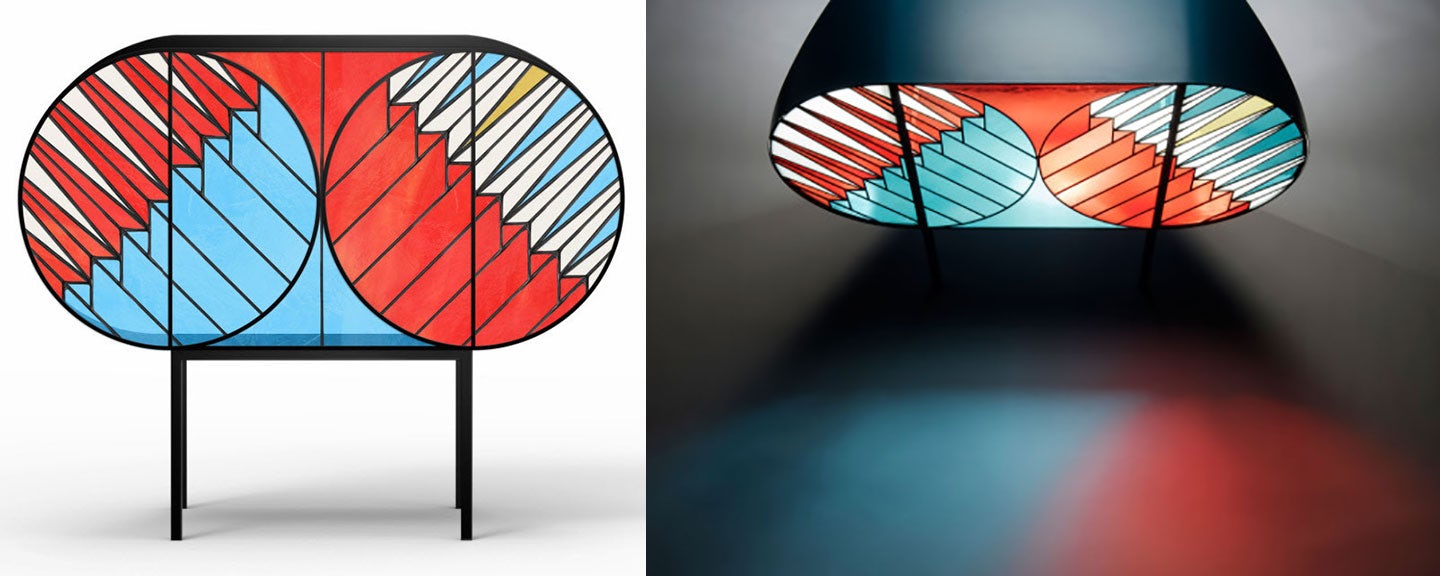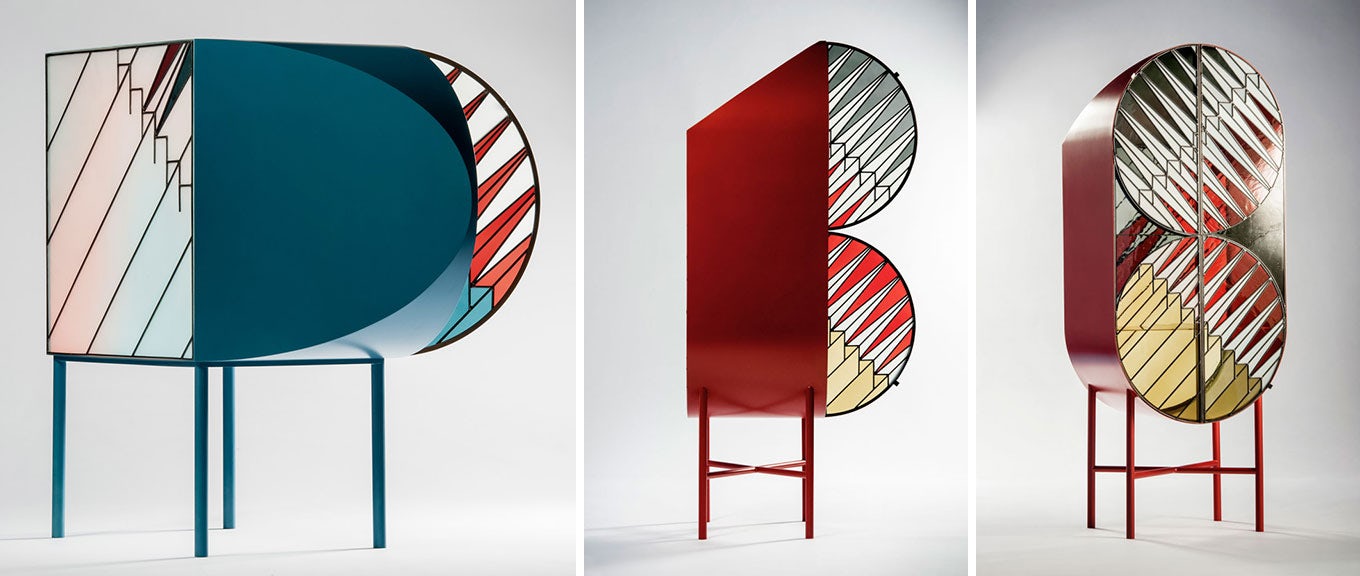Possibly the biggest showcase of architect-manufacturer collaborations every year, Milan Design Week returned with new site-specific installations and, of course, products by award-winning or emerging international architects. We whittle down the list to present our top product picks of the 2016 edition.
Zaha Hadid
The final furniture design of the late Zaha Hadid, Mew is a molded polyurethane table from Sawaya & Moroni that exemplifies the architect’s penchant for fluid lines and curves. Central to the design is a curve that seemingly cuts into the top to give the illusion of two nested pieces. At both ends of the piece, the tabletop swoops down to form hedge-like bases — one wider than the other — that look as if they were poured and solidified in place. Well-suited to writing-desk or dining-table applications, Mew comes in black, white or red.

Zaha Hadid for Sawaya & Moroni
Daniel Libeskind
Attendees of this year’s Milan furniture fair saw both the hard and soft sides of Libeskind. The former looks like a postmodernist wall sculpture from a high-end gallery, but it’s actually a radiator designed for Antrax. Called Android, the piece is formed with a single sheet of steel that has been folded to create unexpected, asymmetrical facets. It comes in a choice of more than 200 colors, can be mounted vertically or horizontally and can be accessorized with a steel towel rail for use in bath settings.

From left: Daniel Libeskind for Antrax and Loloey
The latter is a limited-edited rug collection for luxury carpet brand Loloey. Tufted from 100-percent bamboo silk, the rugs sport graphic patterns that draw on the fractal geometries characteristic of Libeskind’s work. Hand carving in the surface adds to both the visual and tactile interest. The wall-to-wall carpets are offered in white with black patterning or the inverse.

Daniel Libeskind for Loloey
Piero Lissoni
Last year, reconstituted-wood veneer manufacturer ALPI announced the appointment of architect Piero Lissoni as its new art director. This week, the company debuted the first veneer designs to be produced under his direction, including his own Tarsie collection. The series consists of three striking geometric motifs produced using inlay-effect printing with varying wood tones. Tarsie 1 features an irregular herringbone pattern; Tarsie 2 is a two-tone grid of diamonds; and Tarsie 3 sports a classic running pattern inspired by industrial wood flooring.


Piero Lissoni for ALPI
Carlo Ratti
Perhaps his tenure as a director at MIT influenced architect and engineer Carlo Ratti to consider the Internet of Things in his design Lift-Bit, developed in collaboration with Vitra. A prototype of this sofa was displayed this week to demonstrate how sitters use hand gestures or a mobile app to raise the hex-stool modules to different heights. Configurations are programmed to transform the composition into a chair, chaise lounge, bed and other furnishings. When not used for some time, Lift-Bit will get “bored” and start shape-shifting on its own to engage people.


Carlo Ratti with Vitra
David Rockwell/Rockwell Group
The name of this 14-piece furniture collection, Valet, sounds accommodating — and it is. Designed by Rockwell Group for Hong Kong brand Stellar Works, Valet is about comfort and support. Highlights include a number of pieces suitable for entry halls, foyers and other transitional spaces. A standing mirror, for one, allows you a final glimpse at your hair or outfit before walking out the door but also features a leather pocket at its base to drop your mail and periodicals upon returning home.

Rockwell Group for Stellar Works
In addition to the transitional-space furnishings, the collection offers a selection of elegant black tubular-steel seating pieces that range from a chair with leather wrapped armrests and a leather seat-back sling to a sofa with fabric-upholstered cushions supported by a wraparound brass lumbar component and leather straps.


Rockwell Group for Stellar Works
Matteo Thun
From bath fixtures for Duravit and Zuchetti to furniture for Riva and lighting for Zumtobel, Matteo Thun has been around the product design block numerous times. But this week in Milan, the architect officially launched his own product brand, Matteo Thun Atelier. The brand’s first offerings — geared toward the hospitality, healthcare and residential markets — include highly customizable upholstered seating; outdoor furniture and accessories; handmade Chiavari chairs; lighting; patterns for printable surface materials; and decorative objects that range from handmade Murano-glass birds sitting on a glass tree to ceramic vessels and totems.

Matteo Thun Atelier
The biggest standouts for us are the ceramic objects. Tall, short, stout and svelte, in varying silhouettes and color combinations reminiscent of ’80s Memphis pastel hues, the vases and totems are attractive accent pieces to suit almost any interior. Tuscan master potters were tapped to craft the 10 different shapes.

Matteo Thun Atelier
Patricia Urquiola
On the heels of her patterned glass collection for American manufacturer Skyline Design last year, Urquiola plays with colored glass yet again, this time in the Credenza furniture collection for Spazio Pontaccio. Urquiola collaborated with graphic designer Federico Pepe to devise stained glass patterns in a decidedly modern vernacular for semicircular doors and panels of cabinets and screens. The edgy geometric motifs are executed in primary-color shades and are formed by melted metal strips in keeping with traditional stained-glass fabrication.


Patricia Urquiola for Spazio Pontaccio




